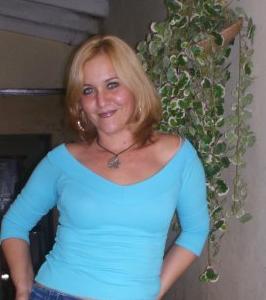Storytelling about a locality or a country becomes and essential task for those who are in charge of reporting. However, it goes beyond that. Expressive richness, well-planned linguistic resources, imagination and excellent syntax are combined to enrich it.
It turns out that Yuniel Rodríguez Chávez knows how to tell them. Professional at questioning, he changes bits and pieces of truth into seductive contents which deserve to be listened to.
How and Why?
“Journalism did not come in the first place. I trained as art teacher in theater, I am a spinoff from the fifth graduation in San Antonio de los Baños.
“As a student I was connected with Radio Jaruco. There, with other six comrades, we used to perform Mochila Abierta a program with a large audience broadcast on Saturdays.
“My first contact with the media was not so difficult, since I applied theater to my job when I dramatized or announced. However, I did not know the radio from within, its real nature.
“In my childhood, the radio station staff decided to make me reserve of announcers. Still in the military service I was allowed to take a course in Radio Güines, today Radio Mayabeque. The first steps were to improvise using my voice. Later I started to write the scripts for the program.
“That’s when I began my social service as an art teacher. I was seized by theater, but not by teaching. I had an interview with the management of the radio station in order to apply for a job there and thus I became a press correspondent in Madruga.”
Explorer of contexts
“It was complex. I did not know anything about journalism then. While I was in the radio station, the staff of the newsletter department instructed me through little details and brief talks. Time was pressing.
“At first I did not know how to get access to sources of information. A colleague, María Amalia Pérez, gave me an insight into some references which contributed to my job.
I worked in the spaces for social facilitation and the Radio Jaruco newsletter from Madruga. During that period I alternated my job as an announcer with my work as a correspondent. In this way, I took part in programs like Disco am and De ahora en adelante. Little by little I grew confident in the journalistic world.
What was your strategy?
“Since I had studied theater, creation was the starting point. I followed my instincts, I learned some writing techniques and I called on the phone every time I had a question. The radio advisers helped me significantly when learning the radio language.
“I remember I had to ask for help with my first material. I made some recordings and then I did not know how to organize them.
“Likewise, workshops were planned for newcomers like me, where I gained some more knowledge. With the new political-administrative division, Radio Jaruco management decided to transfer me to the newsletter department to take on other positions like director and scriptwriter. Preparation was essential. I started as an editorial assistant making bulletins.”
You received the Young Journalist Award of the year in Mayabeque
“I had already taken the postgraduate course in Journalism and I had some expertise. My works have been based on local resources and have contributed to the history of the municipality and the country.
“The delegation of Cuba’s Journalist Union (UPEC) in the territory convened, and after some deliberation informed me that I had won the prize due to my performance.
“Nonetheless the greater prize arrives when the people recognize your efforts, listen to your works and these are helpful for them. What I have done is to prove wrong all the people who did not believe in me.
“I am nothing but another young reporter of the province. I share this prize with the rest of my colleagues. But more important is our responsibility and self-confidence.”
What if you could not have been in journalism?
“I love my profession. When I go to the radio station, I search carefully around looking for a curious and unusual story.I would have been a pilot, a parachutist, or a scuba diver. I enjoy adventure.
Translated by ESTI


